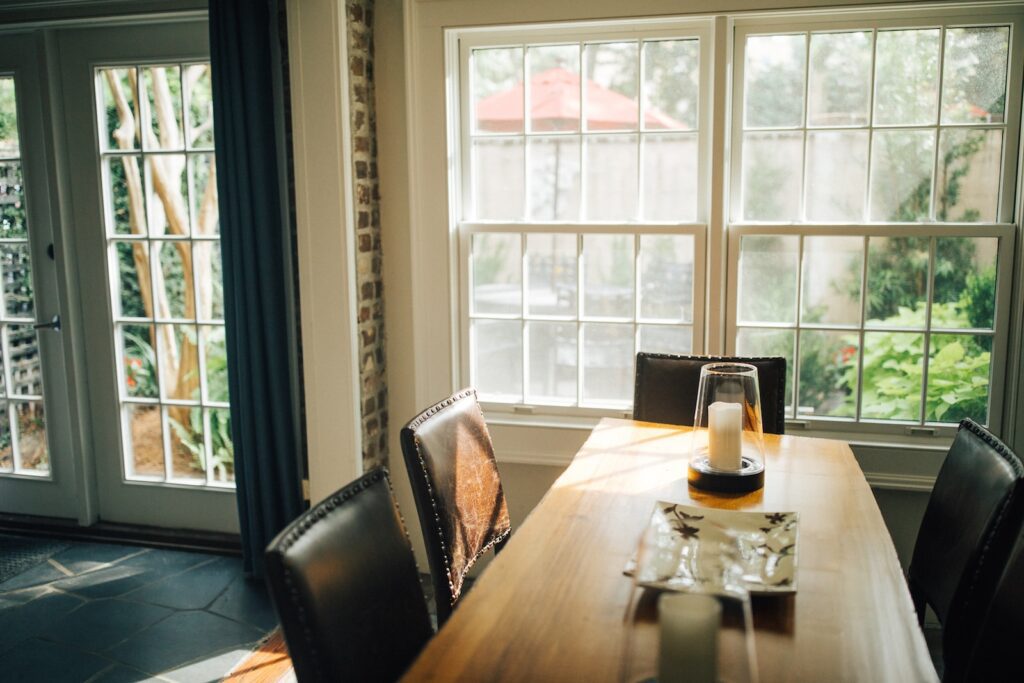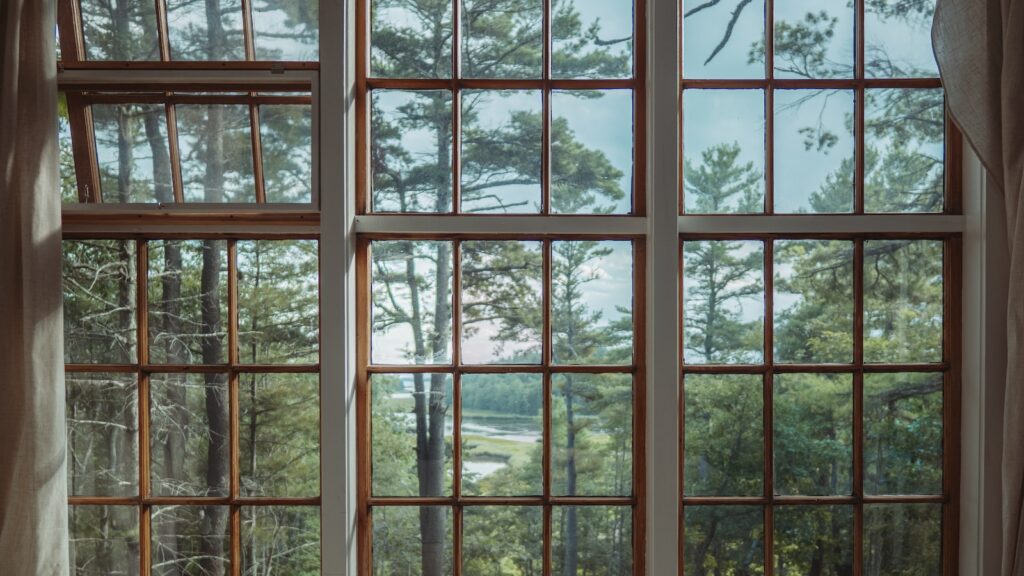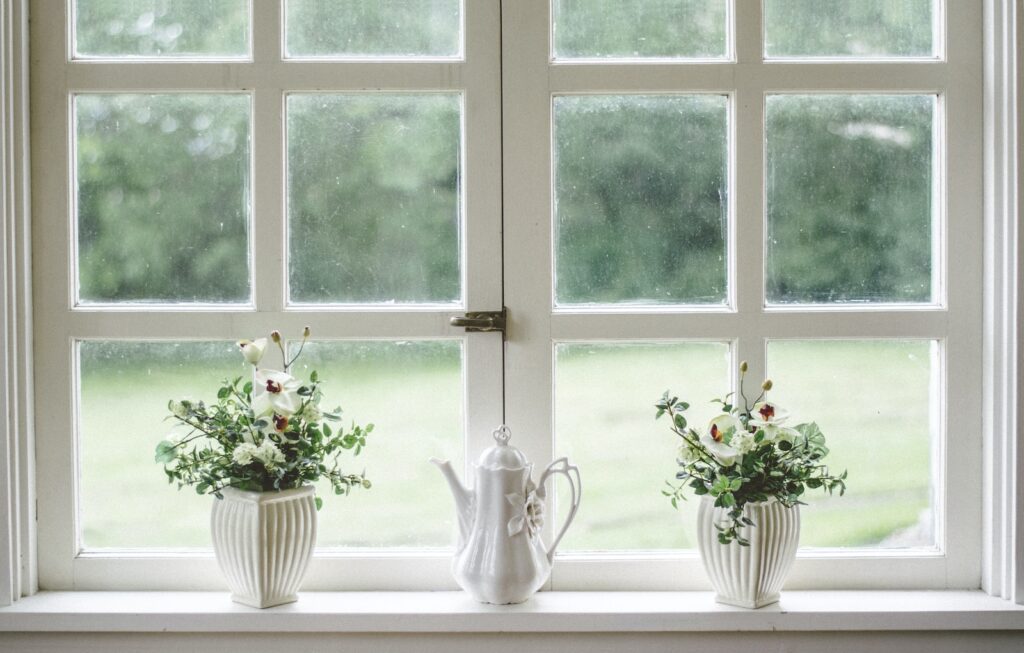Replacing windows is one of the most significant investments for homeowners. It’s essential to know the lifespan of replacement windows before making a purchase. The durability and longevity of replacement windows depend on several factors, including the material, installation, and maintenance. In this article, we will explore the question, “How long do replacement windows last?” and provide you with essential information to help you make an informed decision.

Factors That Affect Window Lifespan
The lifespan of replacement windows can vary depending on a number of factors. Here are a few things that can impact how long your windows last:
- Quality of materials: Windows made from low-quality materials will likely have a shorter lifespan than those made from high-quality materials.
- Installation: Improper installation can cause windows to fail prematurely.
- Maintenance: Proper maintenance can help extend the lifespan of your windows.
- Climate: Extreme temperatures, high humidity, and exposure to the elements can all impact window lifespan.
Typical Lifespan for Replacement Windows
While there is no one-size-fits-all answer to the question of how long replacement windows last, there are some general guidelines you can follow. Here’s what you can expect:
- Vinyl windows: These typically last between 20 and 40 years.
- Aluminum windows: These can last between 20 and 30 years.
- Fiberglass windows: These have a lifespan of around 30 to 50 years.
- Wood windows: These can last anywhere from 10 to 30 years, depending on how well they are maintained.
Factors That Can Impact Window Lifespan
While the lifespan ranges listed above can give you a general idea of what to expect, it’s important to understand that there are factors that can impact how long your windows last. Here are a few things to keep in mind:
Maintenance
Proper maintenance is essential if you want your replacement windows to last as long as possible. This includes things like cleaning the windows regularly, lubricating the moving parts, and checking the weatherstripping to ensure a tight seal. If you neglect maintenance, your windows are likely to fail sooner than they should.
Quality of Materials
One of the biggest factors that can impact window lifespan is the quality of the materials used to make the windows. If you opt for low-quality materials, you can expect your windows to fail sooner than those made from higher-quality materials. While high-quality windows might cost more upfront, they are often worth the investment in the long run.
Installation
Proper installation is critical if you want your replacement windows to last as long as possible. If the windows are installed improperly, they may not function as they should, which can cause premature failure. Be sure to choose a reputable window company that has experience with window installation.
Climate
The climate in which you live can also impact how long your replacement windows last. Extreme temperatures, high humidity, and exposure to the elements can all cause windows to fail sooner than they should. If you live in an area with harsh weather conditions, it’s especially important to choose high-quality windows that are designed to withstand those conditions.
The Benefits of Replacing Your Windows
While the lifespan of replacement windows is an important consideration, it’s not the only one. Here are a few other benefits you can expect when you replace your windows:
- Improved energy efficiency: New windows are often much more energy-efficient than old, drafty windows, which can help you save money on your energy bills.
- Increased home value: Upgrading your windows can increase the value of your home, making it more attractive to potential buyers if you ever decide to sell.
- Better comfort: New windows can help regulate the temperature inside your home, making it more comfortable year-round.
Replacement Windows vs. Window Repairs
If you’re wondering whether you should replace your windows or simply repair them, there are a few things to consider. While repairs can be a good option in some cases, replacement windows offer a number of benefits that repairs can’t match. Here are a few things to keep in mind:
- Cost: While repairs are often less expensive than replacement windows, they may not be as cost-effective in the long run. If your windows are old and failing, you may end up spending more money on repairs over time than you would on new windows.
- Energy efficiency: Repairs may be able to fix specific issues with your windows, but they won’t necessarily improve the overall energy efficiency of your home. Replacement windows, on the other hand, can significantly improve your home’s energy efficiency.
- Curb appeal: If you’re concerned about the appearance of your home, replacement windows can give it a fresh, updated look. Repairs, on the other hand, won’t necessarily improve the appearance of your windows.
Conclusion
When it comes to the lifespan of replacement windows, there are a number of factors to consider. While the lifespan can vary depending on the materials used, climate, and other factors, you can generally expect replacement windows to last anywhere from 10 to 50 years. By choosing high-quality materials, ensuring proper installation, and performing regular maintenance, you can help extend the lifespan of your windows and enjoy all the benefits they have to offer.
Frequently Asked Questions
Here are some common questions people have about replacement windows.
1. What Factors Affect the Lifespan of Replacement Windows?
Several factors can affect how long replacement windows last. The quality of the materials used in the window frames, the type of glass, the installation process, and the climate in your area can all impact the lifespan of your windows.
For example, windows made from durable materials like fiberglass or vinyl tend to last longer than those made from cheaper materials like aluminum. Additionally, windows that are installed properly with a good seal will last longer than ones that are poorly installed and let in drafts.
2. How Often Should I Replace My Windows?
The frequency at which you should replace your windows depends on a variety of factors, including the age of your current windows, the condition they are in, and your budget. In general, most windows will last between 15-25 years before they need to be replaced.
If your windows are older than 25 years, you may want to consider replacing them even if they still seem to be functioning properly. This is because older windows are typically less energy-efficient and can contribute to higher energy bills and a less comfortable living environment.
3. What Are the Signs That My Windows Need to Be Replaced?
There are several signs that your windows may need to be replaced, including drafts or air leaks, visible damage to the frames or glass, difficulty opening or closing the windows, and increased energy bills. If you notice any of these signs, it may be time to replace your windows.
It’s important to note that some types of damage, such as cracks in the glass or warping in the frames, may be repairable rather than requiring a full window replacement. A professional window contractor can help you determine the best course of action.
4. Can Replacement Windows Save Me Money on Energy Bills?
Yes, replacement windows can help you save money on energy bills. Newer windows are typically more energy-efficient than older ones, which can translate to lower heating and cooling costs. Additionally, windows with features like double or triple paned glass and low-e coatings can further improve energy efficiency.
While the initial cost of replacing your windows may be high, the long-term energy savings can make it a worthwhile investment.
5. How Can I Ensure My Replacement Windows Last As Long As Possible?
To ensure your replacement windows last as long as possible, it’s important to choose high-quality materials and work with an experienced window contractor. Proper installation is key to ensuring your windows are sealed correctly and won’t let in drafts or moisture.
You can also help extend the lifespan of your windows by keeping them clean and well-maintained. Regularly cleaning the frames and glass and checking for any signs of damage can help catch issues early on and prevent them from getting worse.
How Long does a Replacement Window Last? | Energy Pro
In conclusion, the lifespan of replacement windows depends on various factors such as the materials used, the quality of installation, and the level of maintenance. However, on average, replacement windows can last anywhere from 15 to 25 years. This is significantly longer than older, traditional windows, which had a lifespan of around 10 to 15 years.
To maximize the lifespan of your replacement windows, it is important to invest in high-quality materials and professional installation. Additionally, proper maintenance such as regular cleaning and inspection can help prolong the life of your windows.
In the end, replacing your windows is a significant investment, but it is one that can provide significant benefits for many years to come. With the right materials, installation, and maintenance, replacement windows can provide improved energy efficiency, increased home value, and enhanced curb appeal for decades.

